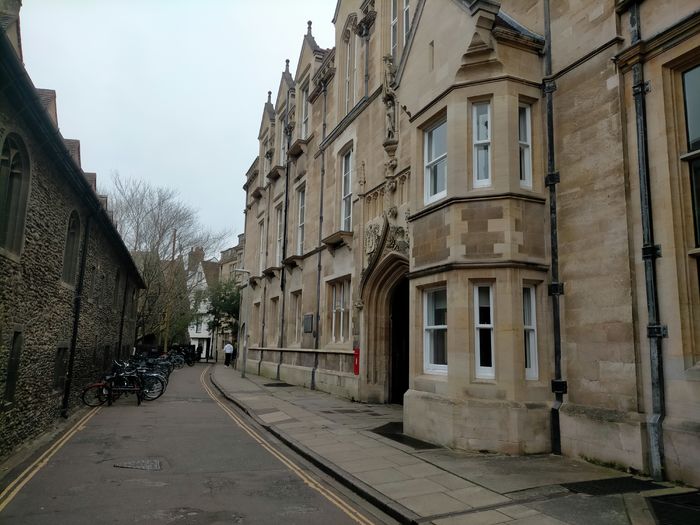Cambridge hasn’t been infantilised, it’s grown up
Wilf Vall makes the case against former Classics fellow David Butterfield’s criticism of accessibility and widening participation at Cambridge

Cambridge is facing an attack from a deadly foe, according to a piece by former Queens’ fellow David Butterfield in The Spectator last month. The soldiers of wokeness are tearing down its hallowed halls and ivory towers, and “infantilising” it with accessibility measures. It’s a laughable argument to anyone who’s actually studied Cambridge’s meagre accessibility schemes. Nonetheless, it remains a reliable weapon in the armoury of the anti-woke brigade, something which is all the more absurd given that the aims of these measures largely overlap with what Butterfield feels Cambridge has lost. His furious resignation in protest over the institution’s decline ignores the reality that its intellectual elitism needs diversity to survive.
“Helping students make the most of their degrees is surely a good thing”
The first target in his crosshairs is support for students with learning difficulties. In Butterfield’s declining Cambridge, extra time and special considerations are doled out to any student wishing to “take the easiest path proffered”. Not only is this assertion downright wrong – those who have experienced the multi-month waiting lists of the ADRC or the draconian criteria of the EAMC know they’re practically allergic to handing out exam allowances – it’s also at odds with Butterfield’s own ideal of Cambridge’s elite academic status. If he truly wants Cambridge to be a place for students to develop their understanding of, and to engage with, the “big questions” posed by their field, then surely helping students make the most of their degrees by tackling learning difficulties is a good thing.
The same can be said of attacks on “widening participation” measures. I, like the vast majority of students from state-educated backgrounds, was under the impression that Cambridge was reserved for students who had to wear straw hats to school. It was only through a “demystifying Oxbridge” session run by our academy that I considered Cambridge as an option, and ended up securing a place. Rather than diluting the intellectual prowess of its students, the effects of this have elevated Cambridge’s scope, both through bringing in pupils who are proven to perform better in exams, and shining new perspectives on intellectual debates which were a closed talking shop for boarding school boys until these changes were made.
“Widening participation measures have elevated Cambridge’s scope”
The dizzying hypocrisy of tradition worship is best seen in Butterfield’s own celebration of public class lists. He praises them for providing the nation with the precious knowledge that Agnata Ramsay, one of the first women allowed to study at Cambridge, topped the Classics Tripos in 1887. This was news that “shocked and delighted the nation,” according to Butterfield, and a perfect example of the need to maintain Cambridge’s archaic traditions. What he fails to mention is that Ramsay received no degree (nor would any women until 60 years after she left Cambridge), got married straight out of university, and largely abandoned her scholarship. She, like many of the brightest women of her time, became “one of the most notorious casualties of the university marriage market”. It was due to “elite” academic practices gatekeeping Cambridge’s cornucopia of ideas for the enjoyment of rich men that one of the greatest classicists of a generation was lost to domestic servitude.
When Butterfield says he wants Cambridge to be an “elite” institution, he doesn’t mean it in an academic or intellectual sense. He wants it to be a collection of people who look and think like him. But what he doesn’t seem to acknowledge is that the Cambridge of old was at risk of becoming a stagnant echo chamber, and it was only by opening it up that its decline could be stopped.
There’s no denying Cambridge has transformed from the institution a young Butterfield arrived at two decades ago – it has been brought into the present day. It remains a place where we’re tested to our wits ends on “the big questions”, which we often do discuss “late into the night”. The difference is that these discussions are now open to all, rather than just those who know how to play polo. If our aim is to push the limits of intellectual thought and produce the best thinkers academia has to offer, then trying to maintain the stranglehold boarding school boys had on this University is not the way forward. We should welcome measures that make sure the Agnata Ramsays of the future don’t miss out on the opportunity for exploration that Cambridge is.
 Comment / Cambridge students are too opinionated 21 April 2025
Comment / Cambridge students are too opinionated 21 April 2025 Interviews / Meet the Chaplain who’s working to make Cambridge a university of sanctuary for refugees20 April 2025
Interviews / Meet the Chaplain who’s working to make Cambridge a university of sanctuary for refugees20 April 2025 News / News in brief: campaigning and drinking20 April 2025
News / News in brief: campaigning and drinking20 April 2025 Comment / Cambridge’s tourism risks commodifying students18 April 2025
Comment / Cambridge’s tourism risks commodifying students18 April 2025 Comment / Cambridge’s gossip culture is a double-edged sword7 April 2025
Comment / Cambridge’s gossip culture is a double-edged sword7 April 2025






